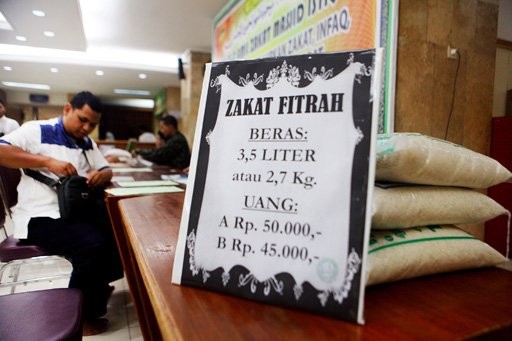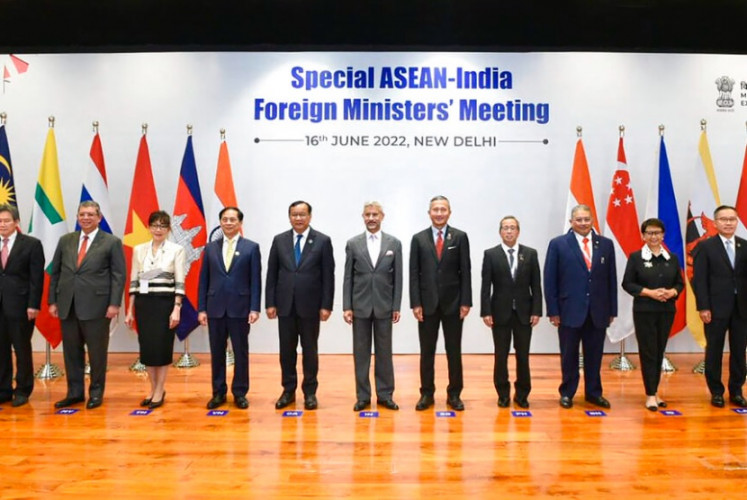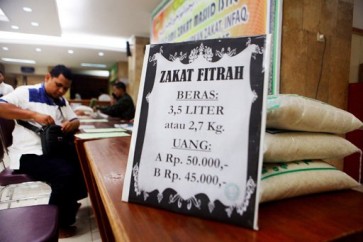INSIGHT: 'Zakat' as a practice of Pancasila values
There are several objectives of zakat linked to the five principles of Pancasila.
Change Size
 Muslims pay zakat fitrah alms at Istiqlal Mosque in Jakarta on Friday. During Ramadhan, Muslims are obliged to pay the special alms that will be distributed to those in need. (JP/Seto Wardhana)
Muslims pay zakat fitrah alms at Istiqlal Mosque in Jakarta on Friday. During Ramadhan, Muslims are obliged to pay the special alms that will be distributed to those in need. (JP/Seto Wardhana)
Z
akat is the practice of Islamic almsgiving. It is the third pillar of faith in Islam, which emphasizes social and economic development and human well-being. This charitable practice is a form of financial worship to express gratitude for the material grace of Allah.
The objective of zakat, as stated in the Quran, is to assure that “of their wealth, there is a right of the poor and the [needy] beggar” (Surah 51:19), so that “wealth does not continue to circulate merely among your rich” (Surah 59:7).
Further, zakat is a compulsory transfer to society, not a voluntary action of charity from individuals. Paying zakat is required of every adult Muslim who possesses wealth of a certain minimum amount.
A closer look at the meaning of zakat shows that it reflects the spirit of Pancasila, Indonesia’s philosophical foundation. There are several objectives of zakat linked to the five principles of our national ideology.
The scholar Al-Qardawi contends that the distribution of zakat should improve conviction of tauhid (the oneness of Allah), iman (belief) and taqwa (righteousness) in Allah. This paramount objective of zakat complies with the first principle of Pancasila, belief in the one supreme God.
Moreover, this instrument is also believed to be a keystone to drive Muslim civilization up to its so-called golden period during the Middle Ages to reduce poverty and redistribute wealth more equally in the Muslim world. History tells us there was so much prosperity at that time that it was even hard to find an eligible zakat recipient.
Referring to Islamic history, some Islamic economists believe that zakat is an effective tool to eradicate poverty. The most popular references for this are the reigns of Umar bin Khattab and Umar bin Abdul Aziz, as apparently the poor had become rich from the alms they had received. These were recognized as golden periods of social justice in Islam due to their effectiveness in combating poverty.
















